LIVING THINGS NURSERY CATALOGUE
The Living Things Nursery Catalogue and Guide to Climate is an investigation of the climatic intelligence of plants, using the traditional format of the nursery catalogue and garden guide as a way of establishing norms and dispensing helpful tidbits about plants to those who consume them. The catalogue hopes to re-establish a relationship between climate and plants, in an effort to gain a better understanding of how living things adapt to the climate in which they live. Among other drawings about the relationship between plants and the climates in which they live, this catalogue relies on global climate data to classify plants and create connections across the world between places with the same climate.
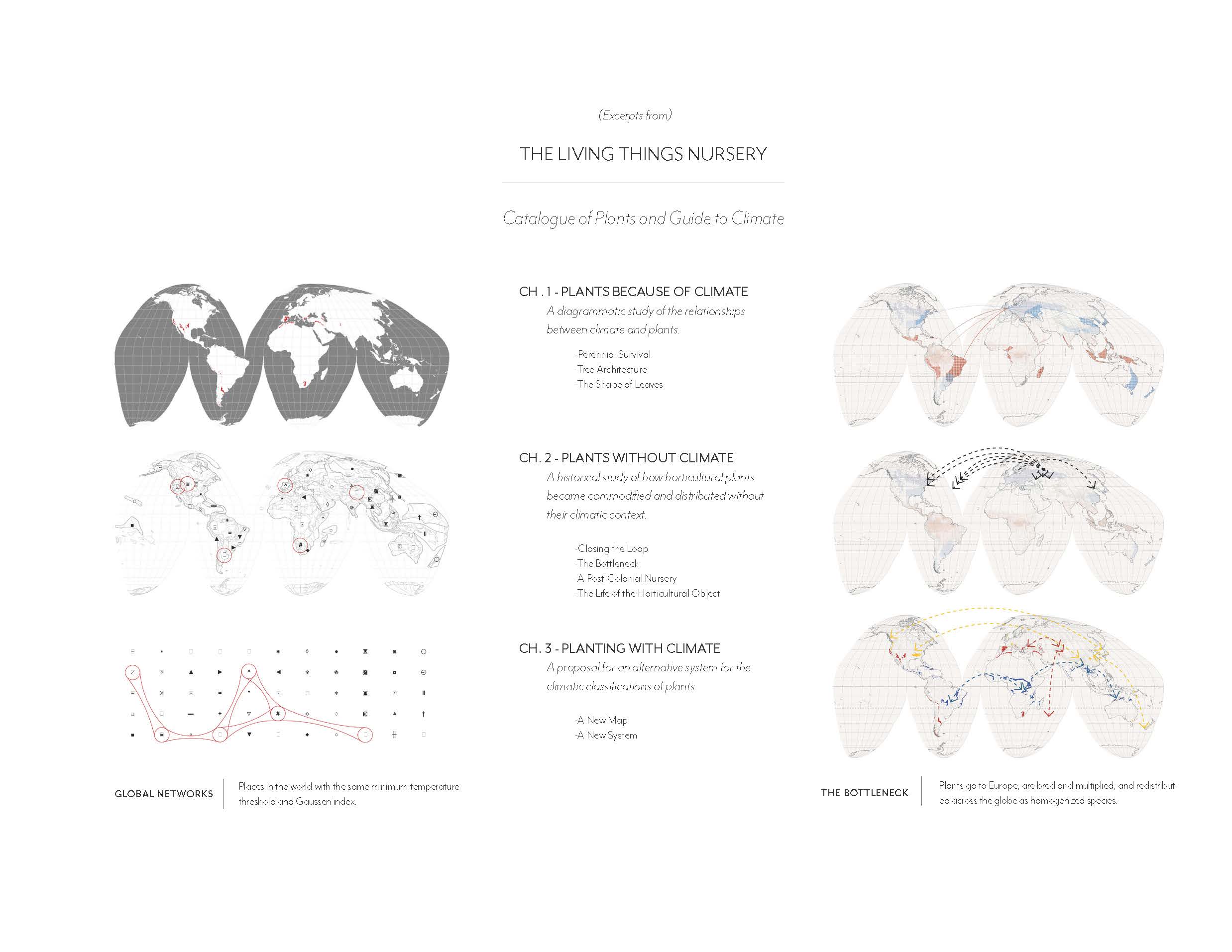
Dear customer,
The mission of Living Things Nursery is to produce knowledge about the livingness of plants. This is in an effort to not only demystify the workings of plants, but to contribute to a general culture of attention to the agencies, propensities, and intelligence of living things.
The LTN Catalogue of Plants and Guide to Climate is a response to the rapid loss of complexity in the ecologies produced by industrialized societies. The horticultural production industry has simplified and commodified plants to serve the goals of capitalist consumerism: plants are being bred to be dumb. They are grown to create consumerist trends: bigger flowers, faster development, and a ready-made final form. These goals strip plants of their intelligence, ignoring and often directly conflicting with plants' long-term climatic adaptations.
This trend contributes to a cycle of confusion and ambivalence about plants from the average buyer in the ornamental potted plant market. Ethnographic research in garden centers outside of London demonstrates a certain degree of discomfort among customers in choosing and discussing perennial plants, shrubs, and trees, but much more security in purchasing garden goods such as pots, patio furniture, and familiar, fast-growing annual plants.
Living Things Nursery seeks to develop a connection between buyer and plant. This connection is not to an object of purchase, but to a variable, intelligent being whose individuality can be explored through a relationship of care and attention. The premise of this document is to acknowledge that relationships with plants are less uncomfortable if we simply know more about how and why they live. If we know how plants think, we are more able to co-create rich, complex spaces with them.
The LTN catalogue synthesizes the intelligence of ecologists, anthropologists, and geographers of the past and present to explain the capacities of plants and the ecosystems they form. It also critiques, responds to, and edits the parameters on multiple contemporary, open-source databases, recognizing the potential of a moment in which one can interrogate her data rather than simply inherit it. The goal is to translate ideas, some as big as the globe and some as small as the leaf, into a multi-scalar, drawing-based analysis.
We are at a moment where a greater climatic intelligence is critical. Unable to move quickly, put on a jacket, or turn on an air conditioner, plants have to endure gradual and abrupt changes in climate and weather, making them the most responsive beings on Earth. The plant is "a meteorological instrument which integrates the various factors of climate and which, with experience, can be "read" like a thermometer or a rain gauge." An openness to learning from plants will play a transformative role in our collective decision-making amidst the current climate crisis.
Sincerely,
The Living Things Nursery
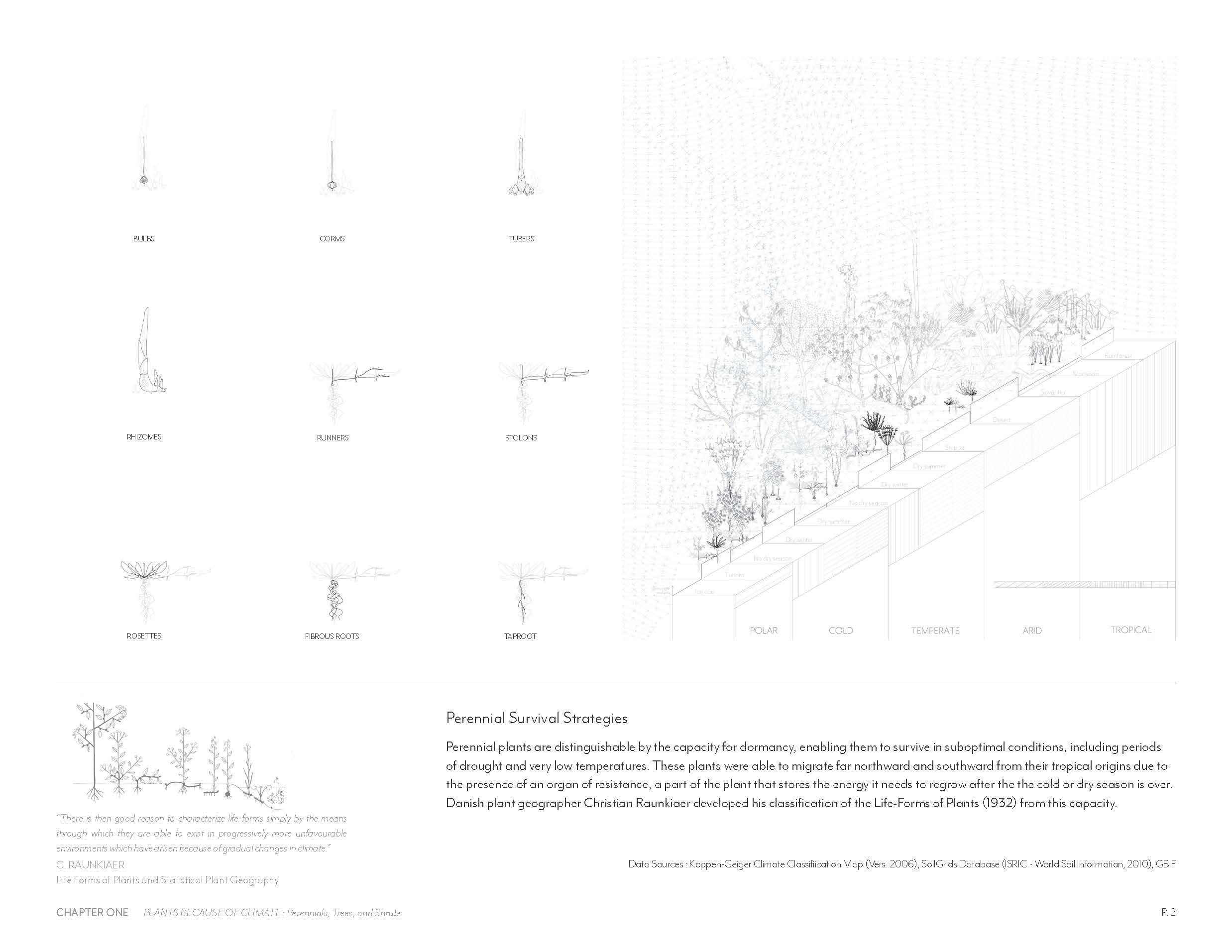
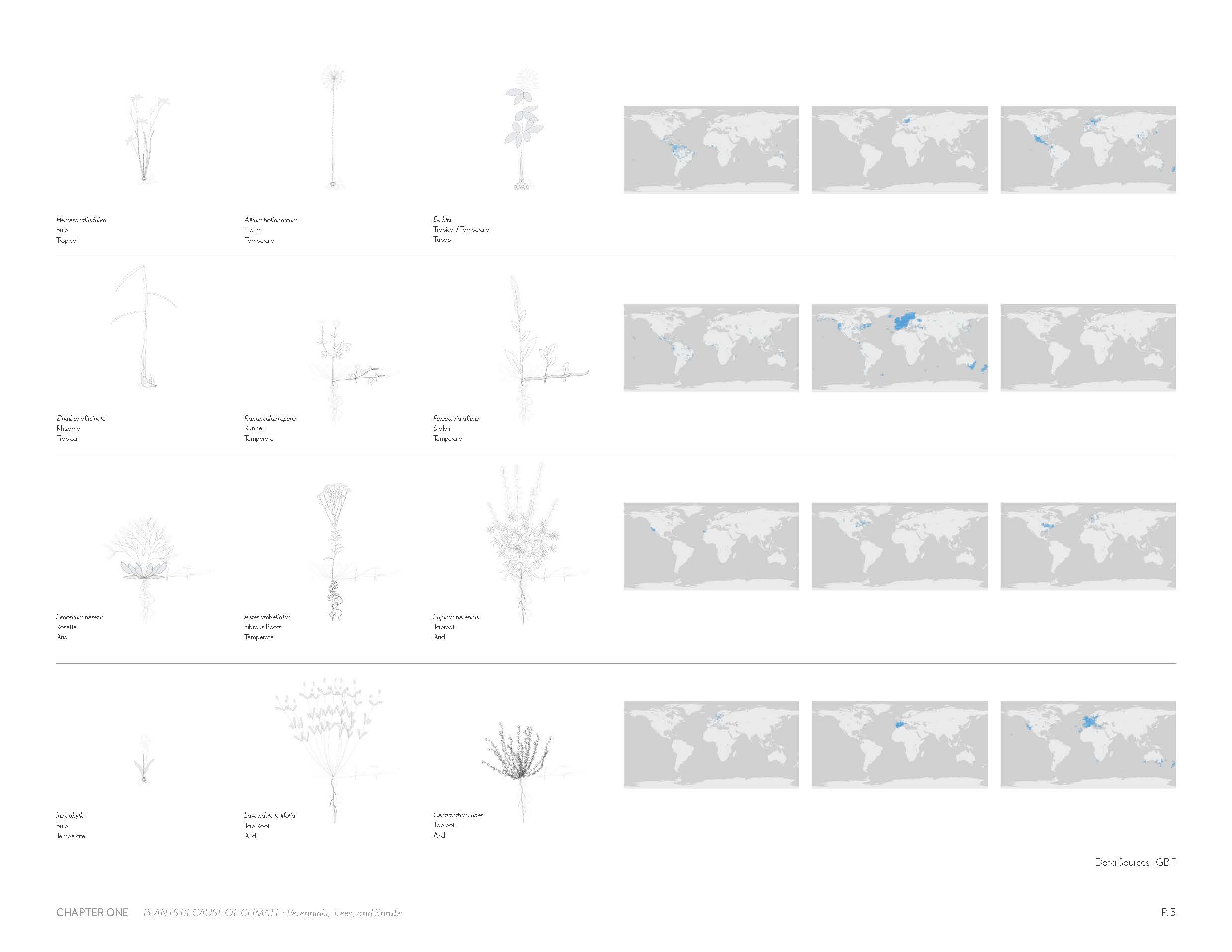
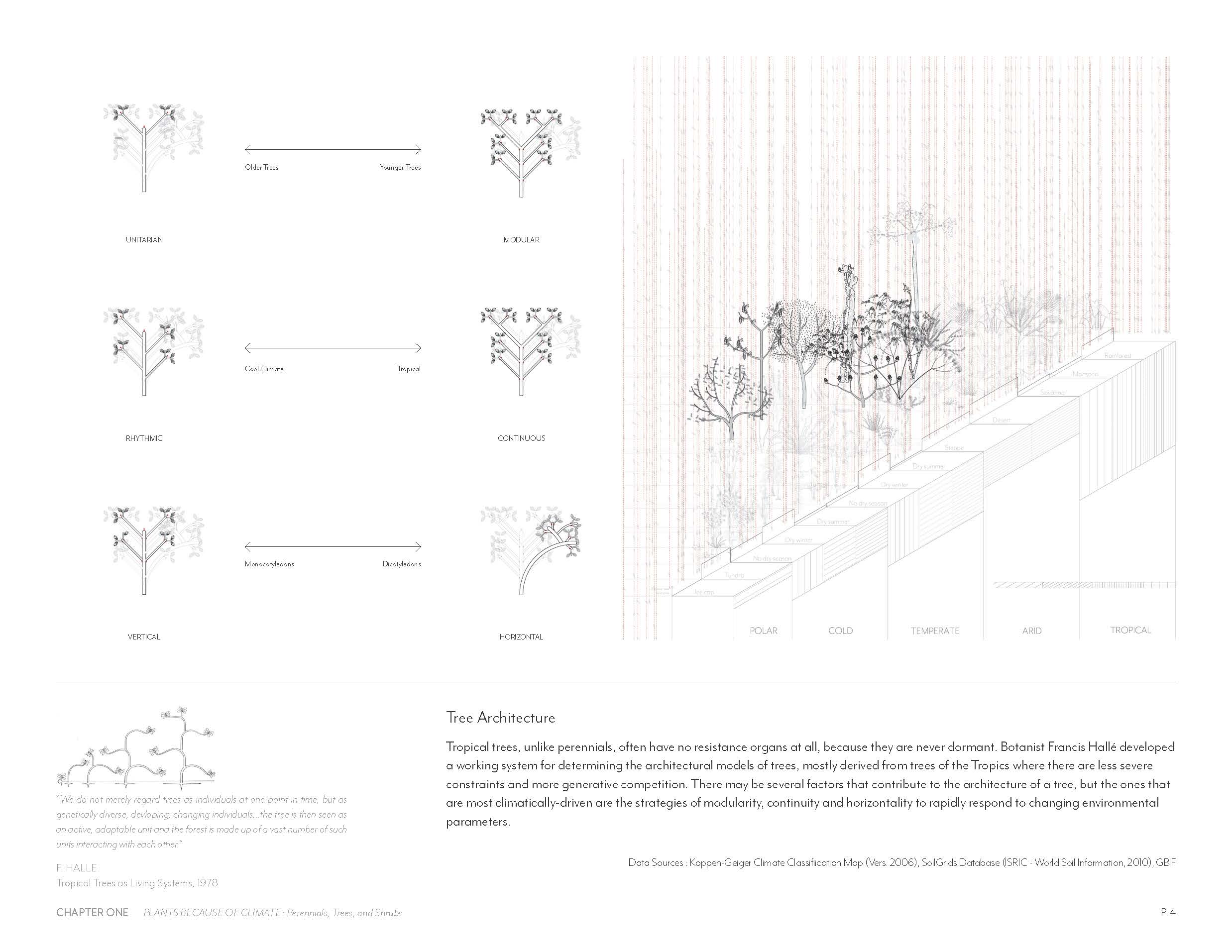



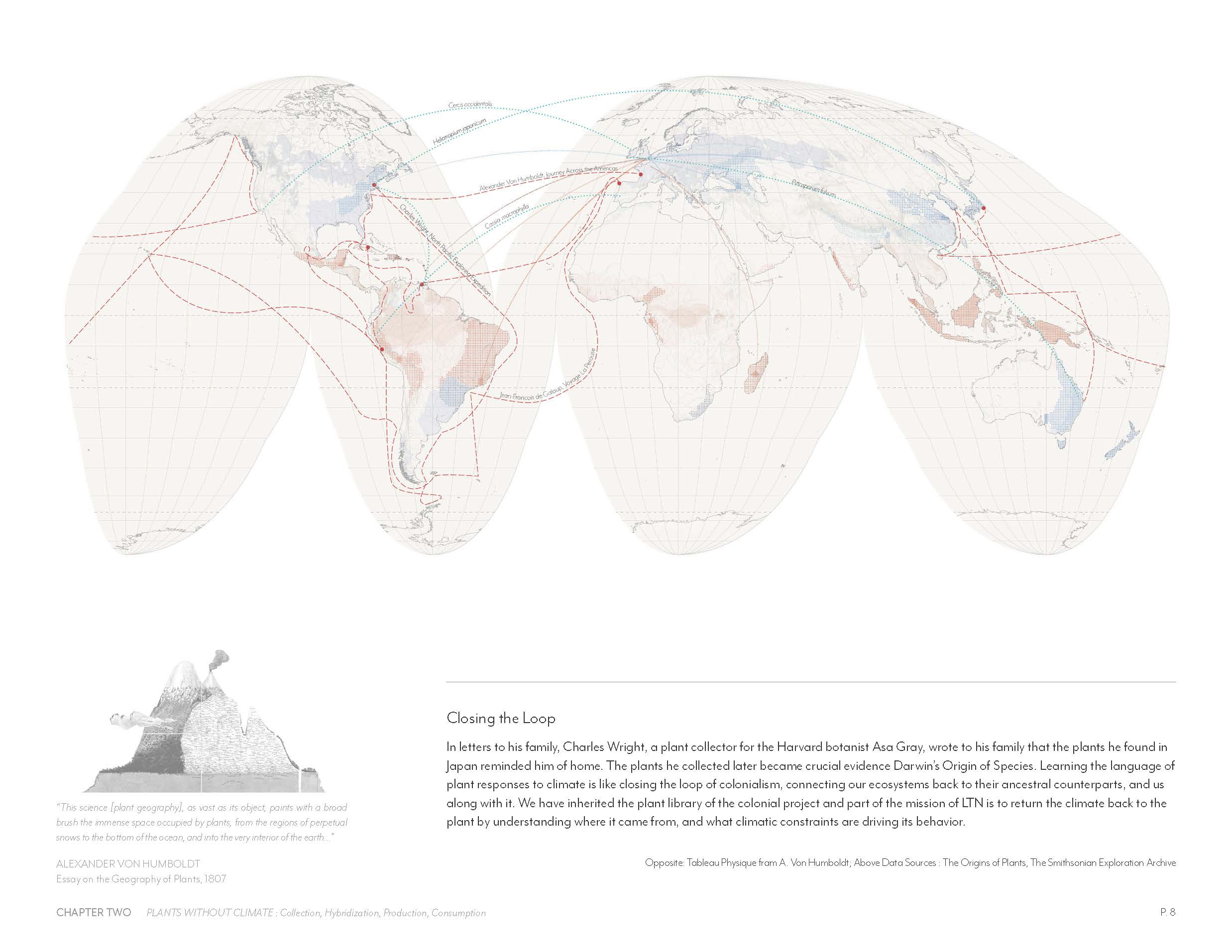




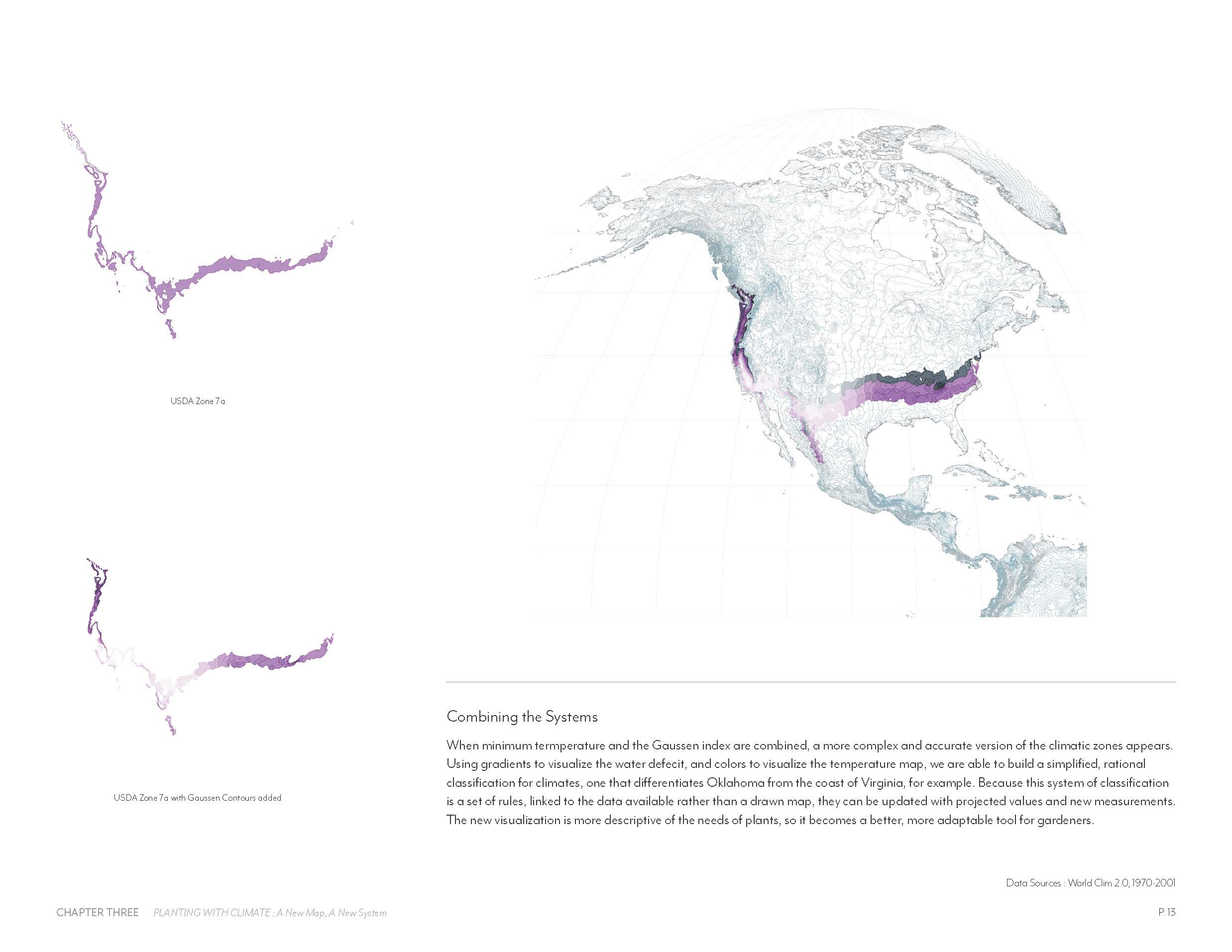
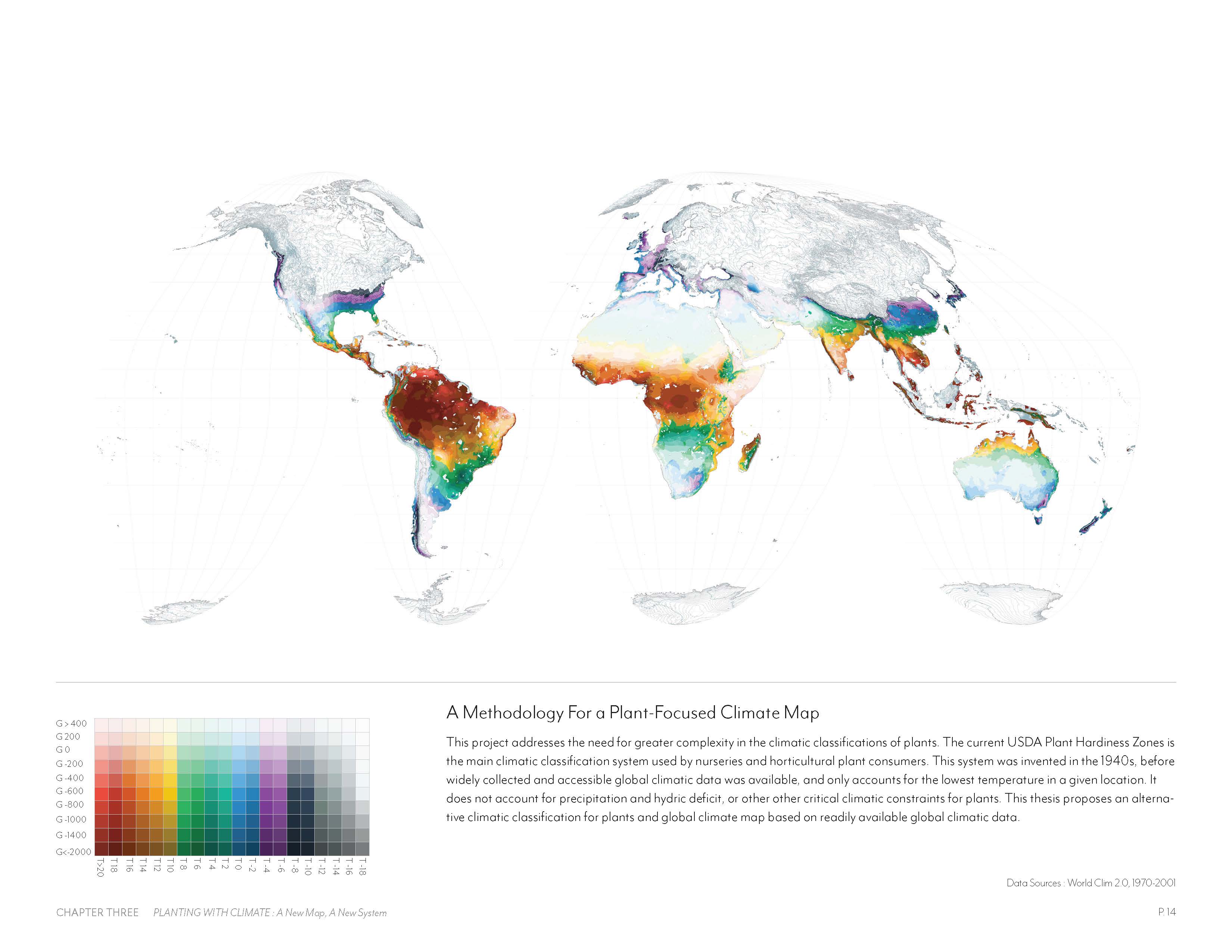




OLT Team: Bonnie Kate Walker